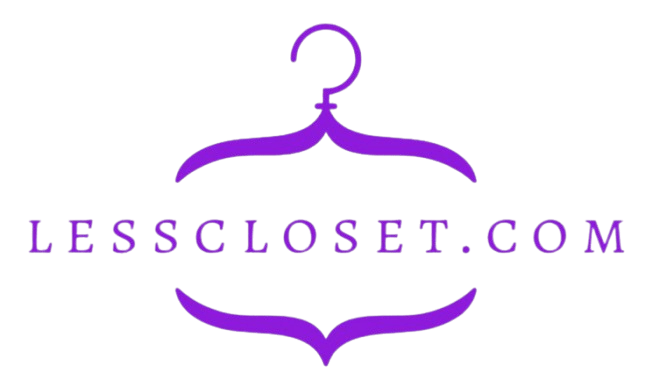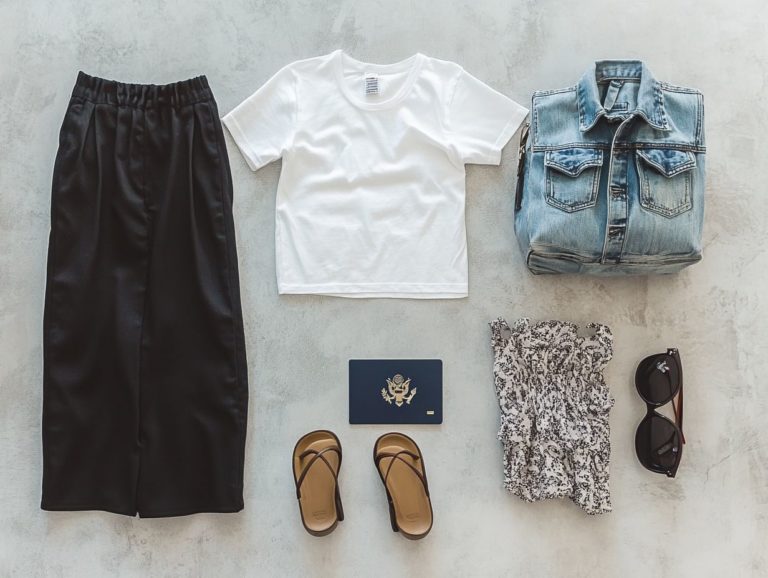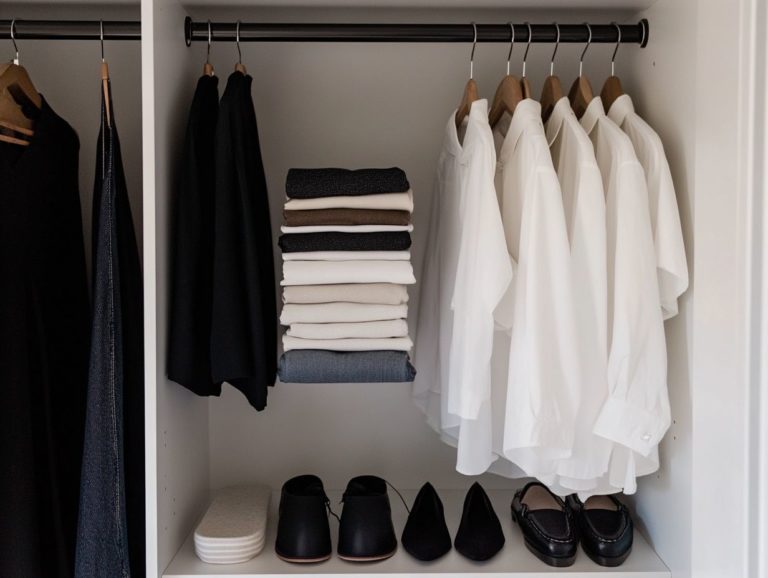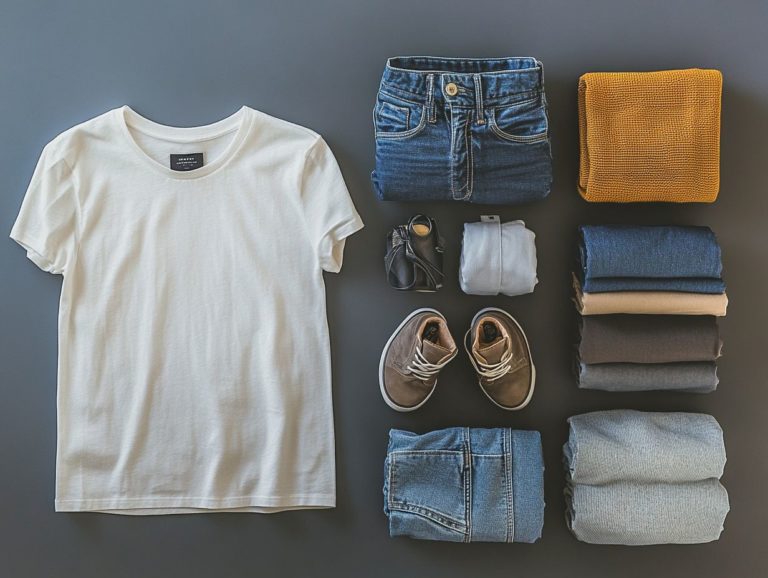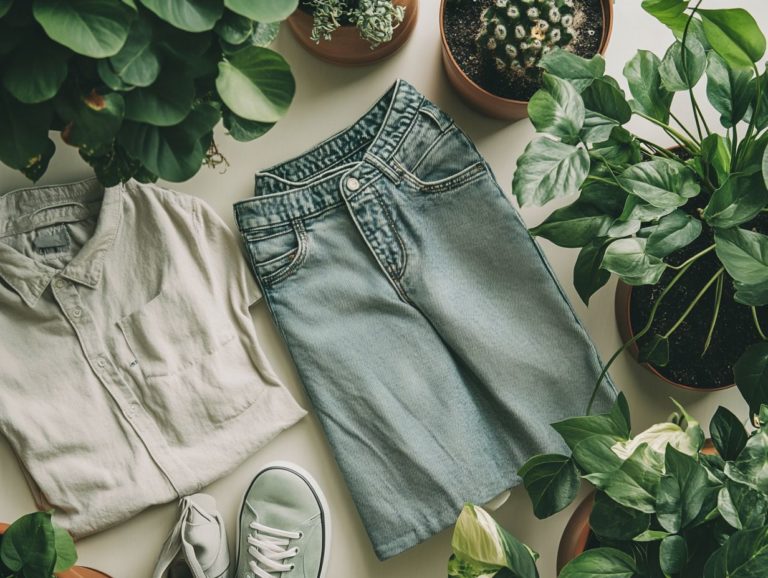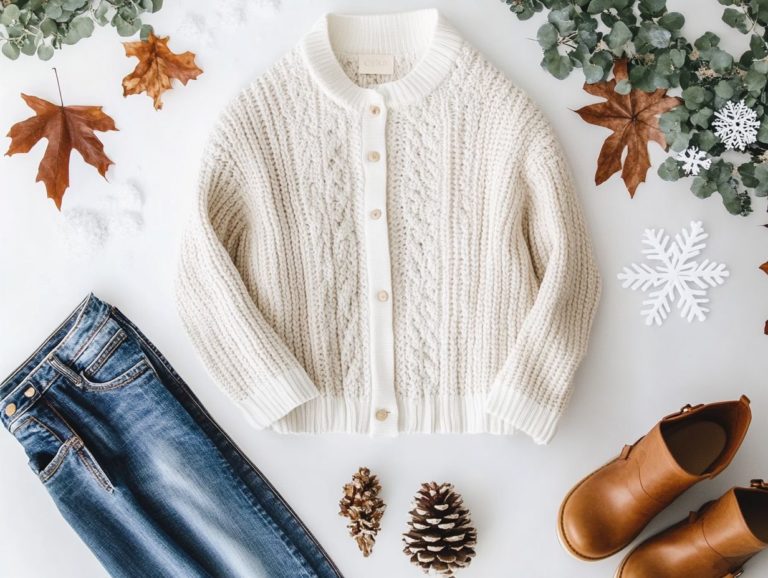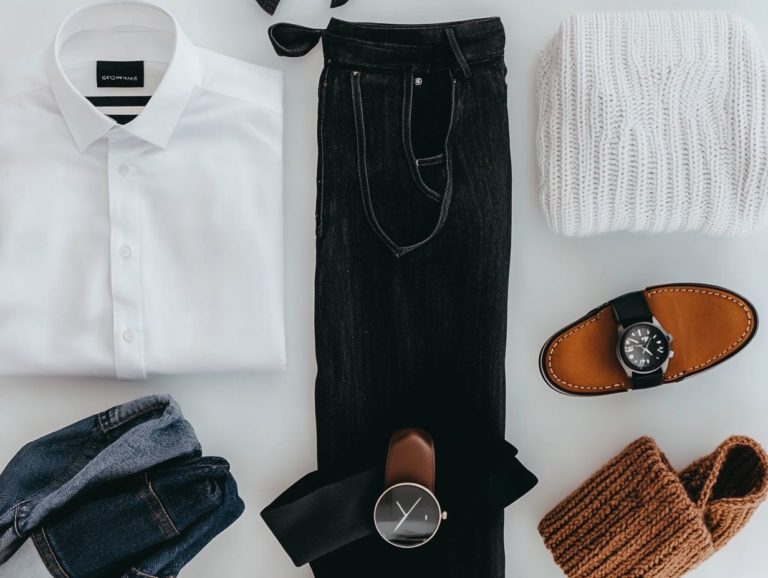The Importance of Essential Items in Minimalism
Minimalism transcends mere style. It s a lifestyle choice that champions simplicity and intentionality.
At its essence, minimalism revolves around essential items those few possessions that genuinely hold significance in your life.
This exploration delves into the crucial role these essentials play in enriching a minimalist lifestyle. It alleviates clutter and stress while enhancing focus and productivity.
You ll also learn how to pinpoint what is truly essential for you. Along with practical tips for sustaining this lifestyle, you will navigate common challenges.
Immerse yourself in this journey to discover how embracing essential items can profoundly transform your everyday existence.
Contents
- Key Takeaways:
- The Role of Essential Items in Minimalism
- Benefits of Incorporating Essential Items in Minimalist Lifestyle
- How to Determine Essential Items
- Incorporating Essential Items into a Minimalist Lifestyle
- Challenges and Solutions for Maintaining a Minimalist Lifestyle
- Frequently Asked Questions
- What is minimalism and how does it relate to essential items?
- What is the importance of essential items in minimalism?
- How do essential items contribute to a more sustainable lifestyle?
- Can essential items in minimalism improve your mental and emotional well-being?
- What are some examples of essential items in minimalism?
- How can essential items in minimalism help you save money?
Key Takeaways:
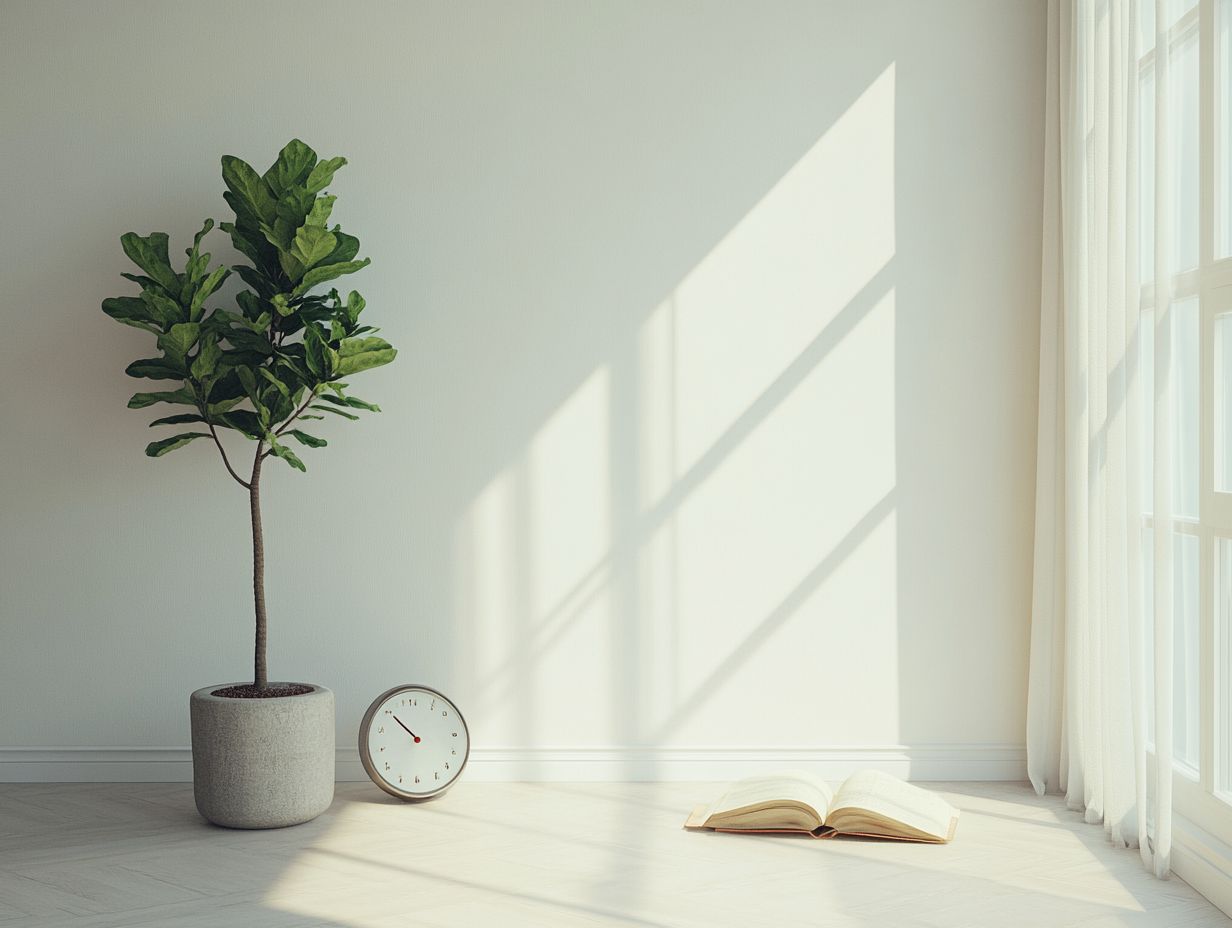
- Essential items play a crucial role in minimalism by helping to define and enhance the lifestyle.
- Incorporating essential items into a minimalist lifestyle can lead to reduced clutter, stress, and increased focus and productivity.
- To determine essential items, it is important to assess personal needs and priorities, and to regularly organize and maintain them.
What is Minimalism?
Minimalism is more than just a trend. It’s a lifestyle choice that invites you to embrace conscious ownership of your possessions. This fosters psychological well-being and happiness through the art of less.
This approach encourages you to live with less clutter, focusing on meaningful items and making intentional choices that truly reflect your personal values.
Rooted in a rich tapestry of ways of thinking, minimalism has evolved over time as a counterpoint to the rampant consumerism that dominates modern society. This philosophy teaches that genuine fulfillment doesn t stem from acquiring more, but from appreciating what you already have.
Influential minimalist thinkers like Dave Bruno and Leo Babauta highlight the transformative power of effective decluttering. They illustrate how reducing distractions can reclaim both your physical and mental space, allowing you to forge deeper emotional connections with treasured items rather than feeling burdened by unnecessary items.
Similarly, Tammy Strobel emphasizes the advantages of sustainable living through minimalism. She demonstrates how intentional choices contribute to a healthier planet. By embracing these principles, you can carve out a life that resonates with authenticity and purpose, leading to a more fulfilling existence.
The Role of Essential Items in Minimalism
Essential items are central to the minimalist lifestyle, acting as the foundation of conscious ownership while promoting a curated collection of meaningful possessions. By emphasizing quality over quantity, you can craft a living space that not only radiates visual simplicity but also nurtures your psychological well-being.
This approach encourages self-reflection, allowing you to evaluate your personal inventory and discern what is truly essential versus what is merely unnecessary. In doing so, you pave the way for a more fulfilling and sustainable lifestyle.
Your commitment to quality also extends to the practical items you choose to keep, reinforcing the value of living with less and cherishing the essentials that genuinely matter.
Defining Essential Items
Defining essential items for a minimalist lifestyle starts with a careful look at your possessions. Focus on items that truly deliver value and utility.
Minimalism is a lifestyle that encourages simplifying your life by reducing excess belongings. This journey invites you to reflect on what genuinely contributes to your happiness and well-being.
Let go of distractions that clutter both your physical space and mental clarity. To create a meaningful collection, consider several criteria that define what makes an item essential, including wardrobe essentials for minimalists.
- Functionality is crucial. Think about kitchen tools like a high-quality chef’s knife or a versatile frying pan that make cooking enjoyable.
- Emotional significance is important too. Pieces of clothing or family heirlooms that evoke memories add depth to your collection, including wardrobe essentials every minimalist needs.
- Aligning with your personal values is also key. Tools that promote sustainability, such as eco-friendly items, support your commitment to a healthier planet.
By intentionally selecting these essentials, you enhance your surroundings and build a deeper emotional connection to your possessions. This enriches the overall quality of your life.
How Essential Items Enhance Minimalism
Essential items enhance your minimalist journey by streamlining your space. They reduce emotional attachment to unnecessary possessions and foster psychological well-being.
By prioritizing quality items that serve practical purposes, you can create an environment that promotes clarity and peace of mind. This approach simplifies daily choices and increases your satisfaction with meaningful possessions.
The benefits extend beyond physical space, positively impacting your emotional stability and happiness. Take Joshua Fields Millburn and Ryan Nicodemus, who share how letting go of excess has opened up space for relationships and passions that truly matter.
Imagine the freedom of knowing every essential item has a clear purpose. This reduces the mental burden of clutter, allowing many individuals to feel lighter and more focused.
Benefits of Incorporating Essential Items in Minimalist Lifestyle
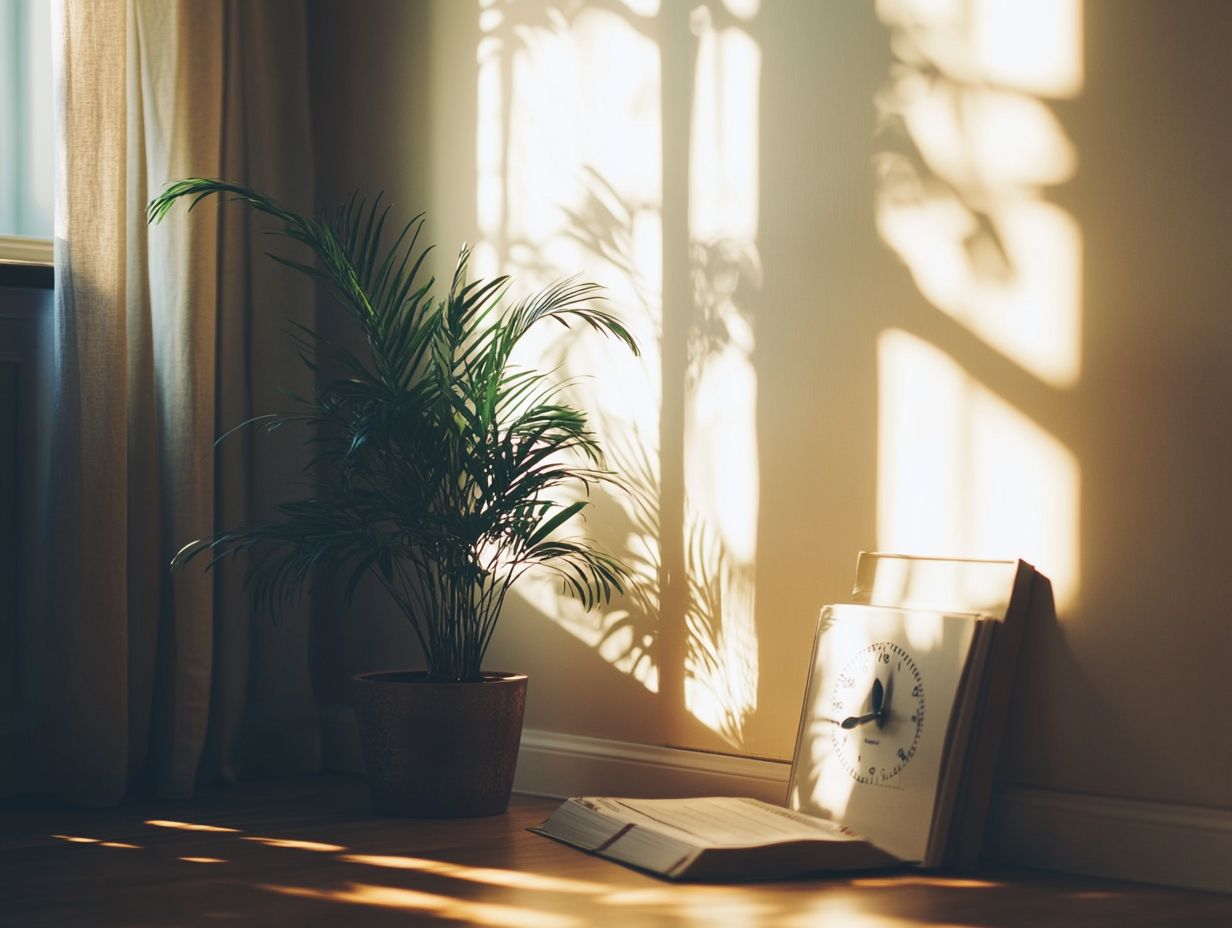
Incorporating essential items into your minimalist lifestyle offers many benefits. Expect reduced clutter, enhanced mental well-being, and heightened focus and productivity.
Thoughtfully selecting meaningful possessions helps create a peaceful home. This dedication to minimalism alleviates stress and empowers you to make intentional lifestyle choices.
Ultimately, this guidance leads you to a happier and more fulfilled existence.
Reduced Clutter and Stress
One of the most immediate benefits of embracing a minimalist lifestyle is the remarkable reduction in clutter, which translates to significantly lower stress levels. By taking the time to conduct a thorough inventory of your possessions and reflecting on what truly matters, you can eliminate those excess items that contribute to a chaotic living environment. This process simplifies your space. It also nurtures tranquility, allowing for greater mental clarity and a sharper focus on the essential aspects of your life.
When you pause to consider how your surroundings influence your emotional state, it can often be a revelation. Self-reflective questions become invaluable on this decluttering journey; inquiries such as, “What do I value the most?” or “How does each item contribute to my overall well-being?” can shed light on the clutter’s effect on your mental health.
By systematically addressing these questions, you can uncover the emotional ties to certain possessions. Determine which items genuinely enhance your life. This intentional decision-making not only promotes emotional well-being but also gives you the power to curate a more harmonious living space.
Increased Focus and Productivity
The minimalist lifestyle elevates your focus and productivity by cutting out distractions and surrounding you with only the essentials.
By thoughtfully choosing what to keep and what to let go, you create a workspace that sparks creativity and alleviates stress. Decluttering improves your physical space. It also enhances mental clarity, allowing for clearer thoughts and sharper decision-making.
To maintain this minimalist state, consider implementing regular check-ins to assess your belongings, ensuring that only items that serve a purpose or ignite joy remain in your space. Establishing routines for consistent organization and cleaning can further reinforce your commitment to a focused lifestyle, ultimately leading to emotional rewards like reduced anxiety and a deeper sense of contentment.
How to Determine Essential Items
Determining the essential items in your life demands a thoughtful analysis of your personal needs and priorities, paired with a thorough inventory of your possessions. This thoughtful exploration fosters self-reflection, enabling you to identify which items genuinely contribute to your happiness and well-being.
By pinpointing what is truly necessary, you can curate a living space that resonates with your values and supports a minimalist lifestyle.
Assessing Personal Needs and Priorities
Assessing your personal needs and priorities is an important step in your minimalist path, allowing you to create an inventory of possessions that truly reflects your values and lifestyle choices. By asking yourself self-reflective questions, you can pinpoint what genuinely matters and make informed decisions about which items deserve a place in your living space. This process clarifies your priorities and strengthens your connection to the minimalist essentials that enhance your overall well-being.
Engaging in this introspective evaluation can involve questions such as, “What items bring me joy or fulfillment?” and “Which possessions serve a practical purpose in my daily life?” Through this examination, you may uncover emotional attachments to various belongings, gaining insight into how these connections influence your choices.
Recognizing that minimalism leads to more intentional living can inspire you to prioritize experiences over things. Start today for a happier, simpler life! By focusing on your emotional needs and what genuinely adds value to your existence, you can curate a lifestyle that fosters contentment, simplicity, and peace. Consider adopting the minimalist approach to essential wardrobe pieces, ultimately leading to living with less.
Incorporating Essential Items into a Minimalist Lifestyle
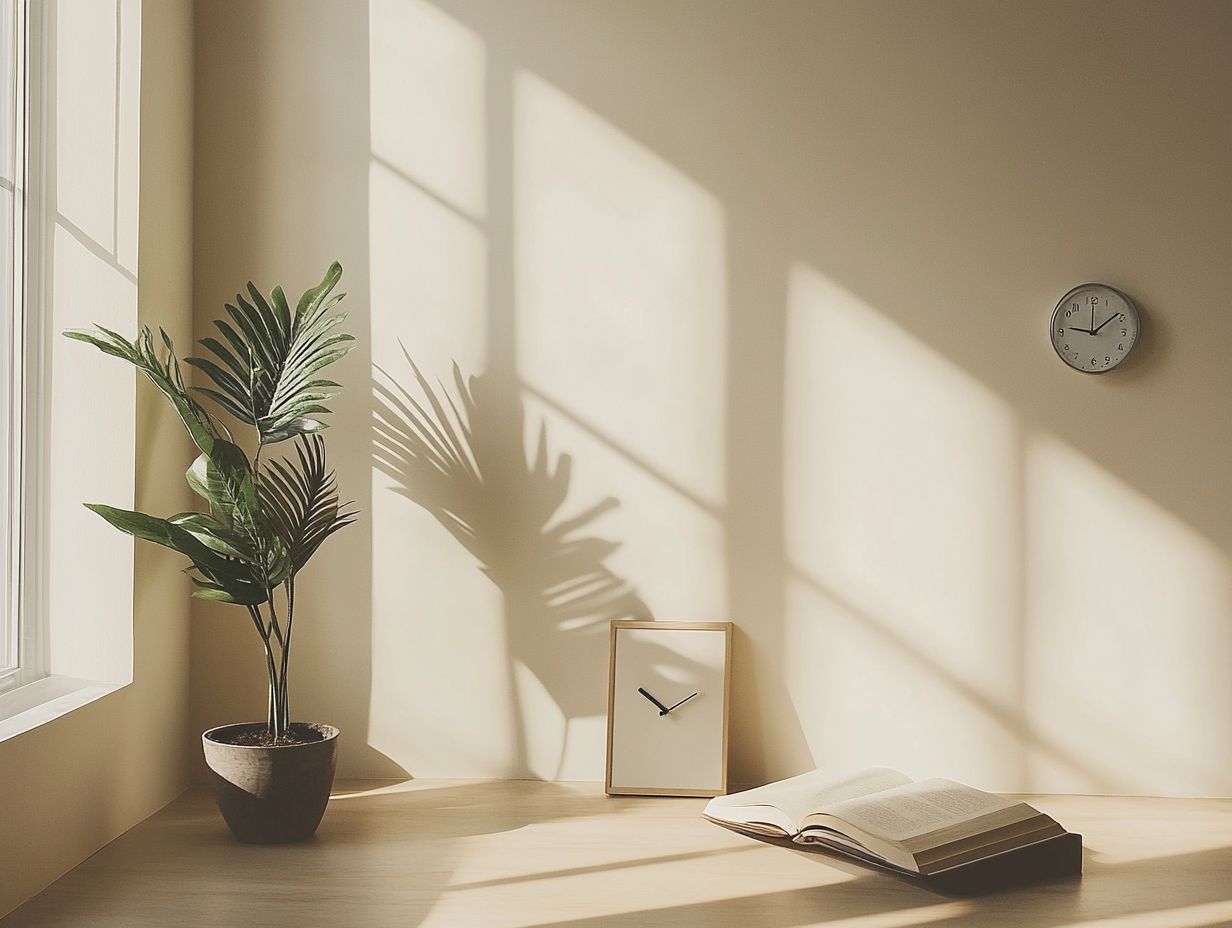
Incorporating essential items into your minimalist lifestyle requires careful planning. Ensure every possession serves a purpose and enhances your well-being.
Using effective ways to tidy up, you can create a living space that reflects your values. This commitment to minimalism leads to a clutter-free environment that nurtures mental clarity and emotional health.
Tips for Organization and Maintenance
Good organization is key to a minimalist lifestyle. It ensures everything you own is accessible and useful.
- Try the 100 Thing Challenge.
- Regularly check your possessions.
- Evaluate your emotional ties to items.
Regularly reevaluating your possessions helps you maintain order and stay aligned with your minimalist essentials.
Consider your emotional attachment to items; not everything deserves a spot in your life. Establish a routine evaluation schedule perhaps quarterly to reassess what truly adds value to your world.
Mindful consumption plays a critical role here. Before making a purchase, ask yourself whether the item has a clear purpose. This practice of thoughtful consumption helps prevent future clutter.
Embracing the psychological benefits of living in a well-organized space can significantly reduce stress. A peaceful environment fosters clear thinking and a positive mindset.
Challenges and Solutions for Maintaining a Minimalist Lifestyle
Embracing a minimalist lifestyle can come with its fair share of challenges, such as the allure of new possessions and the emotional hurdles tied to attachment. Acknowledge these challenges directly to maintain your commitment to minimalism, responsible consumption, and sustainable living.
By adopting effective strategies, you can skillfully navigate these obstacles, fully embracing a lifestyle that prioritizes conscious ownership and promotes psychological well-being.
Overcoming Temptations and Setbacks
Overcoming temptations and setbacks is essential to maintaining your minimalist lifestyle. You often encounter the urge to acquire new items that could disrupt your commitment to owning consciously. By employing self-reflection methods techniques that help you think about your own thoughts and feelings and understanding the psychological triggers behind these temptations, you can develop effective strategies to resist impulsive purchases. This will help you stay true to your minimalist values while focusing on conscious ownership.
This proactive approach boosts your strength to stay committed and fosters a deeper connection to what truly matters. It enhances your overall psychological well-being through a commitment to quality items.
Embracing practical techniques can significantly support you on this journey. For example, the “30-day rule” encourages you to pause before making a purchase. This gives you time to evaluate the necessity of the item and reduces impulsive decisions, particularly when it comes to everyday items.
Creating a “not-to-buy” list can help you curb unnecessary spending. It clearly identifies items that lead to dissatisfaction rather than fulfillment and helps you focus on meaningful possessions. Mindfulness plays a vital role in this process, enabling you to understand your consumer patterns and make thoughtful choices that align with your authentic values.
Through these practices, a richer, more meaningful life becomes not just a possibility but an attainable reality. Embrace living with less and focus on decorative plants and life tools to transform your life into one filled with purpose and joy!
Frequently Asked Questions
What is minimalism and how does it relate to essential items?
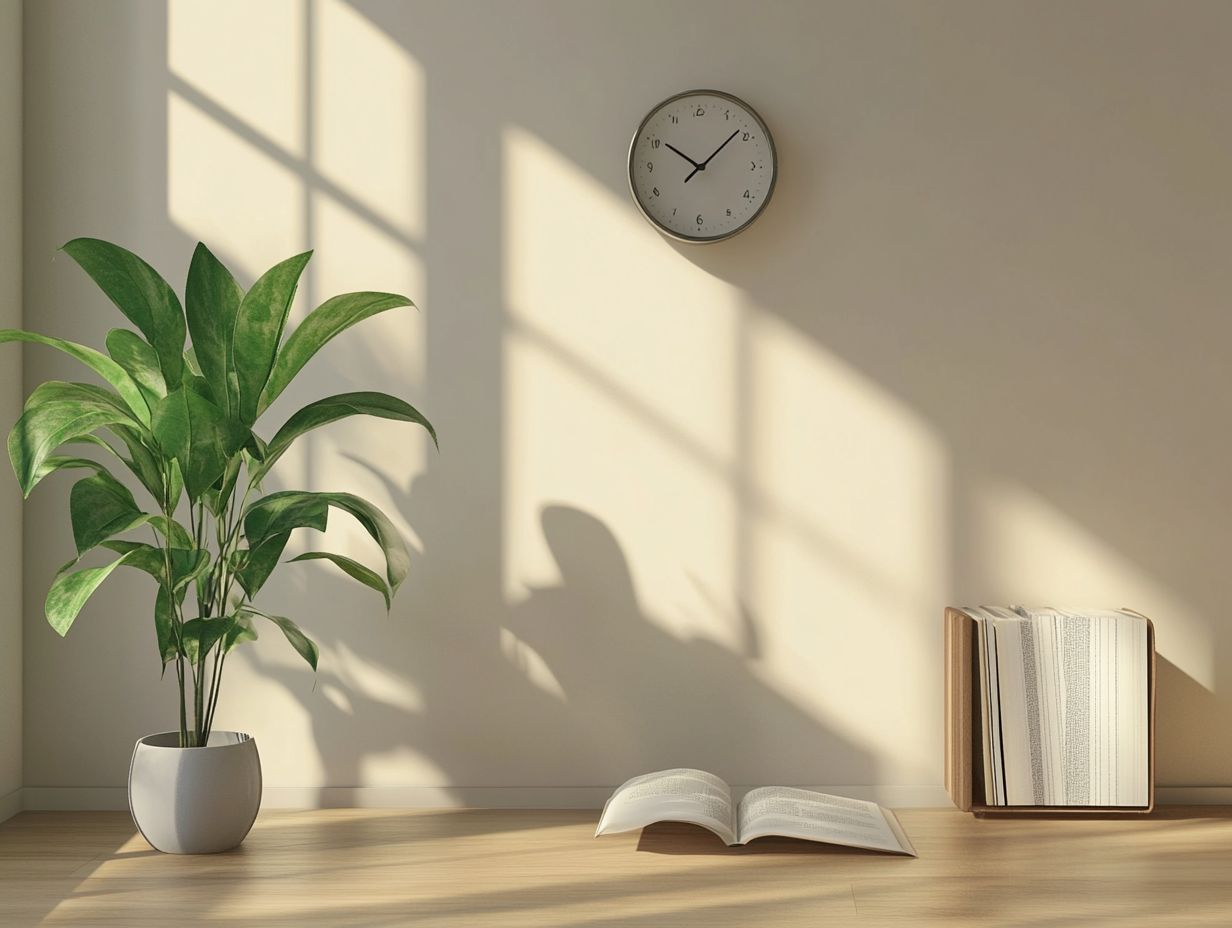
Minimalism is the practice of simplifying your life by removing unnecessary possessions and focusing on what is truly important. Essential items are the few things that are necessary for your everyday needs and can help you live a clutter-free, minimalistic lifestyle.
What is the importance of essential items in minimalism?
Essential items are crucial in minimalism as they help you live with intention and purpose. By keeping only what is necessary, including furniture essentials and decorative plants, you can reduce clutter and distractions. This leads to a more peaceful and mindful way of living.
How do essential items contribute to a more sustainable lifestyle?
By owning only essential items, you consume less and reduce your environmental impact. You avoid constantly buying unnecessary things that eventually end up in landfills. Minimalism with essential items promotes a more sustainable way of living, highlighting the importance of responsible consumption.
Can essential items in minimalism improve your mental and emotional well-being?
Yes, they can. Constant clutter and excess can cause stress and anxiety. By decluttering and keeping only essential items like basic tools and comfortable clothing, you create a more organized and serene living space. This can positively impact your mental and emotional well-being.
What are some examples of essential items in minimalism?
Essential items in minimalism can vary for each individual, but some common ones include basic clothing, kitchen essentials, and personal care items. These are frequently used items that serve a practical purpose in your daily life, such as kitchen gadgets and emergency items.
How can essential items in minimalism help you save money?
Having only essential items means you are not spending money on unnecessary things. This can help you save money in the long run and avoid the trap of constantly buying what you don’t need. It fosters a lifestyle of happiness from less. In minimalism, prioritize quality and purposeful purchases, such as travel essentials and personal belongings, over quantity.
Explore minimalism further and share your experiences to inspire others on their journey!
